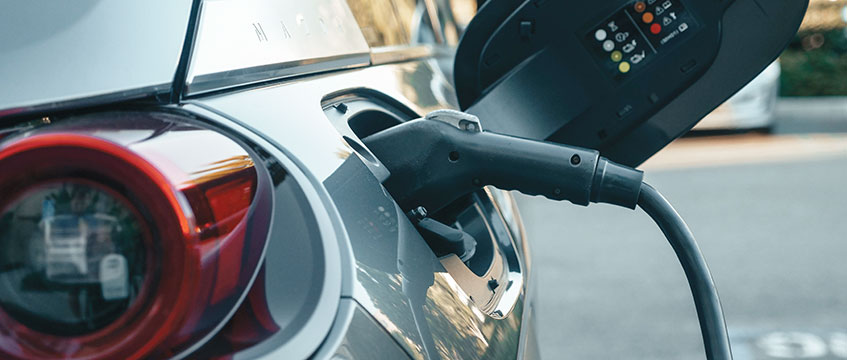Putting the wheels in motion on EV charging
Landlords with “spare” land have always looked for quick and easy ways to earn additional income from their holdings. The current favoured option, where the spare land is suitable for car parking, is through electric vehicle charging points. This may be beneficial on its own as an additional income stream or (in case of retail or leisure schemes) might help to drive footfall or increase dwell time. For residential buildings, it might be about improving saleability by providing an additional amenity to residents. In all cases, it will help burnish the landowner’s ESG credentials.
Deal structures For landowners considering the installation of EV charging points, there are a few points on deal structuring to be considered at the outset.
Some landlords may want to install and operate the charging points themselves. This is challenging for landlords without the necessary technical skills, but there are specialist suppliers and contractors who can assist with installation and ongoing maintenance and operation.
Landlords with “spare” land have always looked for quick and easy ways to earn additional income from their holdings. The current favoured option, where the spare land is suitable for car parking, is through electric vehicle charging points. This may be beneficial on its own as an additional income stream or (in case of retail or leisure schemes) might help to drive footfall or increase dwell time. For residential buildings, it might be about improving saleability by providing an additional amenity to residents. In all cases, it will help burnish the landowner’s ESG credentials.
Deal structures
For landowners considering the installation of EV charging points, there are a few points on deal structuring to be considered at the outset.
Some landlords may want to install and operate the charging points themselves. This is challenging for landlords without the necessary technical skills, but there are specialist suppliers and contractors who can assist with installation and ongoing maintenance and operation.
A second option (which does not usually directly benefit the landlord) is that their existing tenant with car parking/spare land decides they want to either install their own chargers or sublet the space to an operator. This would usually require consent under the lease for works and/or the subletting.
The most common option is to lease the land to an EV charging operator. There are quite a number of these and landlords will need to do their market research as to which is best for them and then agree terms.
Issues to consider
There follow several issues which may arise on a deal involving a landlord subletting space to an EV charging operator:
Substations
The power requirements of EV charging points may necessitate the installation of a new electricity substation near the site. This requires a separate lease to the local distribution network operator and associated cabling easements; land for this will also need to be available. The term of this lease is likely to be 99 years or longer (or the DNO may want the freehold) so this additional land-take needs to be taken into account as part of the initial feasibility assessment for the EV scheme.
Tenure and term length
Many operators will require a 25-year term as a minimum to ensure they have sufficient time to recover their initial investment. Consideration needs to be given as to whether the lease is inside or outside the security of tenure provisions of the Landlord and Tenant Act 1954; security of tenure could make redevelopment of the land more difficult and costly.
Consents
There are a number of third-party consents that may be needed before a lease to an EV charging operator is granted: from the DNO (to the form of substation lease and in relation to the connection of the chargers to the grid); planning permission from the local authority; and from superior landlords and lenders (if applicable). It may also be necessary to involve neighbouring landowners if easements or wayleaves are required.
Exclusivity
Where the landlord has a large car park or several nearby sites, the EV charging operator may want exclusivity for a period of time or in relation to a particular site or area. Clearly, this will vary from deal to deal, but landlords need to be mindful of competition law and also whether the exclusivity should be limited to a particular type/voltage of charger.
Customer service issues
Finally, landlords need to be mindful that users may not distinguish between the operator of the charging points and the owner of the land (particularly if the land is a shopping centre with its own staff, branding and identity).
It is therefore important that service levels by the EV charging operator are considered to ensure that the chargers are available when expected to avoid customer disappointment if they visit a site just to use them and find them unavailable or out of order. Data sharing and the implications of the General Data Protection Regulation, as to where customer information may be shared between the landlord and operator, must be covered in any agreement between the parties.
Consideration should also be given to what signage/advertising can be used by the operator on their charging points; a landlord may not want an operator carrying adverts that were adverse to its or its tenants’ commercial interests.
Take charge
These are just a few of the many issues to be considered by landlords seeking to leverage spare land for EV charging. There will be many more for each site, which will be deal-, landlord-, or operator-specific. Therefore, as with telecoms leases, landlords should not enter into such arrangements lightly and without consideration of all of the relevant factors. If carefully considered, having an EV charging station can be win-win for all parties.
Gavin Whitney is a partner at Fladgate LLP
Image © Kindel Media/Pexels











